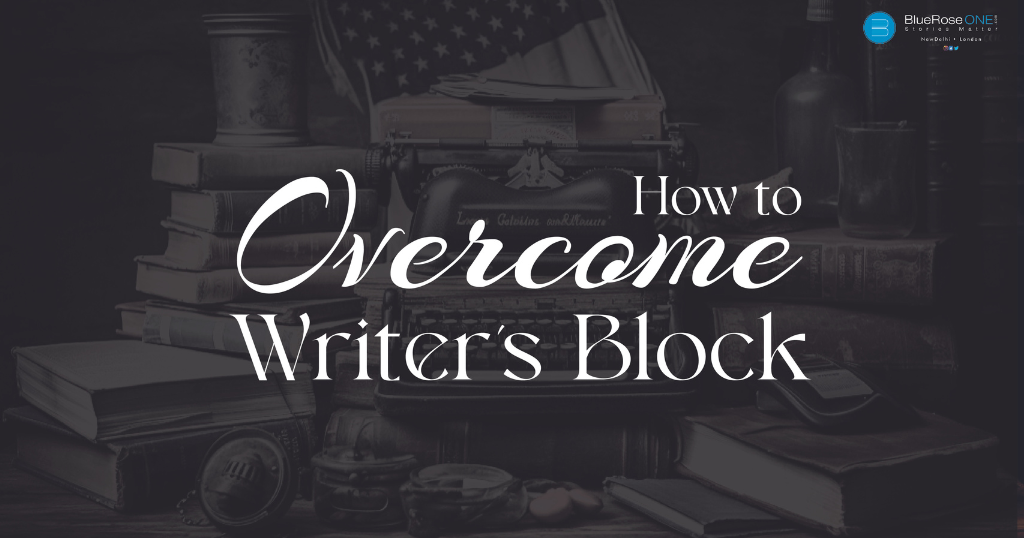Writer’s block is a term familiar to anyone who has ever attempted to express themselves through the written word. It is a frustrating and often paralysing condition when a writer finds themselves unable to produce new work or experiences a significant slowdown in their creative output.
Read: Book Review – Think and Grow Rich a Book by Napoleon Hill.
Writer’s block is a common phenomenon, affecting professional writers, students, bloggers, and even casual journal keepers. In this essay, we will explore the nature of writer’s block, its causes, and strategies to overcome it, as well as the importance of fostering a conducive creative environment.
Understanding Writer's Block
Writer’s block is often described as a creative paralysis that can manifest in various forms. Some writers may experience a complete inability to start a new project, while others may be unable to continue an existing one. It can manifest as a lack of ideas, an inability to find the right words, or a general feeling of frustration and stagnation.
Causes of Writer's Block
The causes of writer’s block are multifaceted and can vary from person to person. Here are some common factors contributing to this creative roadblock:
- Perfectionism: Writers who strive for perfection often impose impossibly high standards on themselves, setting an unrealistic bar for their work. This relentless pursuit of flawlessness can become a significant obstacle as it leads to self-criticism, self-doubt, and an intense fear of falling short of these lofty expectations. The result is often creative paralysis, where the writer struggles to put words on paper, constantly revising and critiquing their work instead of progressing.
- Fear of Failure: The fear of producing subpar work is a common affliction among writers. This fear can be paralysing, causing self-doubt and anxiety that hinder the writing process. Writers may avoid writing altogether to evade the possibility of failure, even though imperfection is an inherent part of the creative process. Overcoming this fear is crucial to breaking free from writer’s block and allowing creative expression to flow.
- Lack of Inspiration: A writer’s block can be triggered by a lack of fresh ideas and inspiration. When a writer feels uninspired or creatively drained, it can be debilitating. The absence of a creative spark makes it challenging to start or continue writing. Overcoming this obstacle often requires actively seeking inspiration from various sources, exploring new experiences, and rekindling one’s passion for writing.
- External Distractions: A conducive writing environment is crucial for maintaining focus and creativity. External distractions, such as noisy surroundings, interruptions, or a cluttered workspace, can disrupt the creative flow. These distractions divert the writer’s attention away from the task at hand, making it difficult to concentrate on writing. Creating a quiet and distraction-free space is essential to combating this hindrance.
- Procrastination: Procrastination is a common enemy of productivity and creativity. Putting off writing tasks leads to a buildup of anxiety and frustration. The longer a writer delays, the more daunting the task can become. This avoidance behaviour can create a cycle of anxiety that makes it even harder to start or continue writing. Breaking the habit of procrastination requires discipline and time management skills.
- Overworking: An excessive workload, often compounded by unrealistic deadlines, can lead to mental exhaustion and creative burnout. When writers push themselves too hard and don’t allow for breaks and relaxation, they may find their creativity stifled. Overwork can contribute to writer’s block by depleting the mental and emotional reserves needed for effective writing. Balancing workloads and setting achievable deadlines are essential to preventing this form of creative stagnation.
Importance of a Conducive Creative Environment
Creating an environment conducive to creativity is essential for preventing and overcoming writer’s block. Here are some key elements to consider:
- Physical Comfort: Creating a comfortable and ergonomic writing environment is essential for maintaining focus and productivity. A comfortable chair ensures that you can write for extended periods without physical discomfort. Good lighting minimises eye strain and supports alertness. An organised workspace reduces clutter and promotes efficiency. By eliminating physical distractions and discomfort, you can concentrate on your writing, allowing ideas to flow more freely and reducing the likelihood of writer’s block.
- Inspiration: Surrounding yourself with inspirational elements can significantly enhance your creative output. Objects, books, art, or mementos that resonate with your interests and passions serve as visual cues that trigger your creativity. They can remind you of the reasons you love writing and provide a source of motivation. When you encounter obstacles, these inspirational items can reignite your enthusiasm and help you push through creative challenges.
- Supportive Routine: Establishing a consistent writing routine is a powerful tool for overcoming writer’s block. Designated writing times condition your mind to be creative during those periods. It becomes a signal to your brain that it’s time to focus and produce. Having a routine also provides a sense of stability and predictability, reducing anxiety and resistance to starting or continuing your writing projects.
- Minimise Distractions: Distractions can be one of the most significant impediments to productivity and creativity. Minimising distractions, whether it’s silencing your phone, finding a quiet writing space, or using website blockers to stay off social media, is crucial. Clearing your environment of potential interruptions allows you to maintain deep concentration on your work. This heightened focus enables the creative flow to flourish and keeps writer’s block at bay.
- Healthy Lifestyle: A healthy lifestyle directly influences your mental clarity and creative capacity. Regular exercise increases blood flow to the brain, improves cognitive function, and reduces stress. A balanced diet with proper nutrition supports brain function and energy levels. Sufficient sleep is essential for cognitive rejuvenation, memory consolidation, and problem-solving abilities. By maintaining a healthy lifestyle, you optimise your mental and physical well-being, providing a solid foundation for creativity and reducing the likelihood of writer’s block.

Learn to Overcome Writer's Block in 10 Simple Ways and be Creative for Your Writings.
Now, we’ll explore ten proven ways to overcome writer’s block, igniting your creative spark and getting those words flowing again.
- Embrace Freewriting
- Change your writing environment.
- Set small, achievable goals.
- Change your writing routine.
- Seek Inspiration from Other Writers
- Use prompts and writing exercises.
- Take breaks and practice self-care.
- Mind mapping and outlining
- Collaboration and feedback
- Give yourself permission to write badly.
- Embrace Freewriting
Freewriting is a liberating technique that encourages writers to break free from the shackles of perfectionism and self-criticism. It involves setting a timer for a specific duration, usually 10 to 15 minutes, and letting your thoughts flow onto the page without inhibition. During this exercise, you don’t worry about structure, grammar, or coherence, and you refrain from editing or censoring yourself. The beauty of free writing lies in its ability to tap into your subconscious creativity. It often starts with jumbled, seemingly unrelated thoughts but can gradually evolve into coherent ideas. It’s a method of silencing the inner critic and allowing your genuine voice to shine through. By giving yourself the freedom to write without judgement, you can unlock new perspectives and ideas, effectively overcoming writer’s block. - Change your writing environment.
Your writing environment has a significant impact on your creativity and productivity. When you find yourself stuck in your usual writing space, changing your environment can work wonders. Exploring different locations like a park, coffee shop, library, or any place that inspires you can inject fresh energy into your writing. The change in scenery can stimulate your senses and provide new perspectives, breaking the monotony that often leads to writer’s block. Whether it’s the hum of a café, the tranquilly of a library, or the natural beauty of a park, each setting can trigger unique ideas and emotions. By experimenting with various writing environments, you can find what resonates with you and revitalise your writing flow, making it easier to overcome creative blocks. - Set small, achievable goals.
One common cause of writer’s block is feeling overwhelmed by the scale of a writing project. To combat this, it’s essential to break your writing tasks into small, manageable goals. Instead of setting the daunting goal of writing an entire chapter or essay, focus on achieving specific, bite-sized objectives. This can mean completing a particular section, a single paragraph, or even just one sentence at a time. Accomplishing these smaller goals provides a sense of achievement and motivates you to continue your writing journey. Over time, these incremental victories accumulate, and you’ll make substantial progress on your larger project. Setting achievable goals not only eases the burden of tackling a large task but also empowers you to combat writer’s block by making the writing process less intimidating and more manageable. - Change your writing routine.
While routines can provide structure and discipline, they can also become stifling and contribute to writer’s block. If you’ve established a rigid writing routine, consider shaking things up. For example, if you typically write in the morning, experiment with an evening session. If you’re accustomed to composing on a computer, try using pen and paper. The idea is to introduce novelty to your writing process. A change in routine disrupts stagnation and sparks creativity. By embracing these variations, you’re more likely to view your work from different angles and approach it with a fresh perspective. This shift can help you overcome writer’s block, as it allows you to see your writing with new eyes and approach it from an entirely different standpoint. - Seek Inspiration from Other Writers
Writers often find inspiration from the works of others. Reading books, articles, and poems within your genre or in areas of personal interest can be a rich source of creativity. As you delve into these texts, take note of phrases, themes, or writing styles that captivate you. The act of reading exposes you to diverse voices, perspectives, and narrative techniques, all of which can enrich your own writing. It’s not about imitating others but rather gaining inspiration and insights. Reading triggers your imagination, setting your thoughts in motion and helping you overcome writer’s block by providing a fresh lens through which to view your own work. It can guide you in exploring uncharted territories and revitalising your creativity. - Use prompts and writing exercises.
Writing prompts and exercises are invaluable tools for jumpstarting your creativity and bypassing writer’s block. They come in various forms, from single words or sentences to complex scenarios. The purpose of prompts is to redirect your thoughts and take them in unexpected directions. This can help break the cycle of creative stagnation. Numerous online resources offer writing prompts tailored to different genres and styles, making it easy to experiment and explore new ideas. Prompts often serve as the spark that ignites your creative fire, offering a starting point when you’re unsure how to proceed. By embracing these tools, you can transcend writer’s block and embark on a journey of imaginative exploration, finding inspiration where you least expect it. - Take breaks and practice self-care.
Pushing too hard when faced with writer’s block can lead to frustration and burnout. Recognising when you need a break is essential. Stepping away from your writing and engaging in self-care activities, such as taking a walk, meditating, or pursuing enjoyable hobbies, is crucial. Physical activity, relaxation, and self-compassion can clear your mind and rejuvenate your creativity. During these breaks, your brain often continues to process ideas and may find solutions to creative challenges. It’s a time when the mind can unwind, free from the pressures of writing, and allow new insights to percolate. Self-care is a powerful antidote to writer’s block, helping you return to your work with renewed energy and a fresh perspective, ultimately aiding your creative output. - Mind mapping and outlining
Sometimes, writer’s block stems from a lack of clarity about how to start or structure your writing. Mind mapping and outlining are valuable tools for organising your thoughts and ideas in a structured manner. A visual mind map or a detailed outline acts as a roadmap for your writing, showing the bigger picture and how each component fits together. This method helps alleviate the sense of overwhelm that can accompany a writer’s block by breaking down the writing process into manageable sections. When you can see the logical flow of your work and the relationships between different elements, you’re better equipped to proceed with confidence. Mind mapping and outlining enable you to overcome writer’s block by providing a clear path forward, eliminating confusion, and helping you focus on the task at hand. - Collaboration and feedback
When grappling with writer’s block, don’t hesitate to seek assistance from fellow writers or trusted friends. Collaboration and feedback offer fresh insights and potential solutions to the challenges you face. Discussing your ideas or sharing your writing with someone you trust can lead to valuable feedback and constructive suggestions. Explaining your thoughts to another person can often clarify your ideas and ease a writer’s block by providing an external perspective. Collaborative efforts can also infuse your work with new ideas and approaches, revitalising your creative process. Whether it’s through brainstorming with a writing partner or seeking input from a trusted mentor, engaging with others can be an effective strategy to overcome writer’s block. - Give yourself permission to write badly.
Writer’s block is frequently driven by the fear of producing subpar work. To combat this fear, it’s important to grant yourself the freedom to write poorly. Understand that a first draft doesn’t need to be perfect; it serves as the raw material upon which you’ll refine and craft your final piece. By allowing yourself to write without self-criticism, you remove the pressure to be flawless and, paradoxically, free your creativity. This method encourages you to focus on the act of creation rather than perfection. Once you’ve completed your initial draft, you can revisit and improve it. The critical step is getting those words on the page. By permitting yourself to write without judgement, you can overcome writer’s block and unleash your creative potential.
Writer’s block is a hurdle that every writer encounters, but it doesn’t have to be insurmountable. By incorporating these ten proven strategies into your writing routine, you can break free from creative stagnation and reignite your passion for writing. Remember, the key is to experiment with these techniques and discover what works best for you. Ultimately, the ability to overcome writer’s block is a skill that can be honed over time, allowing you to unlock your full creative potential and share your unique voice with the world.
















